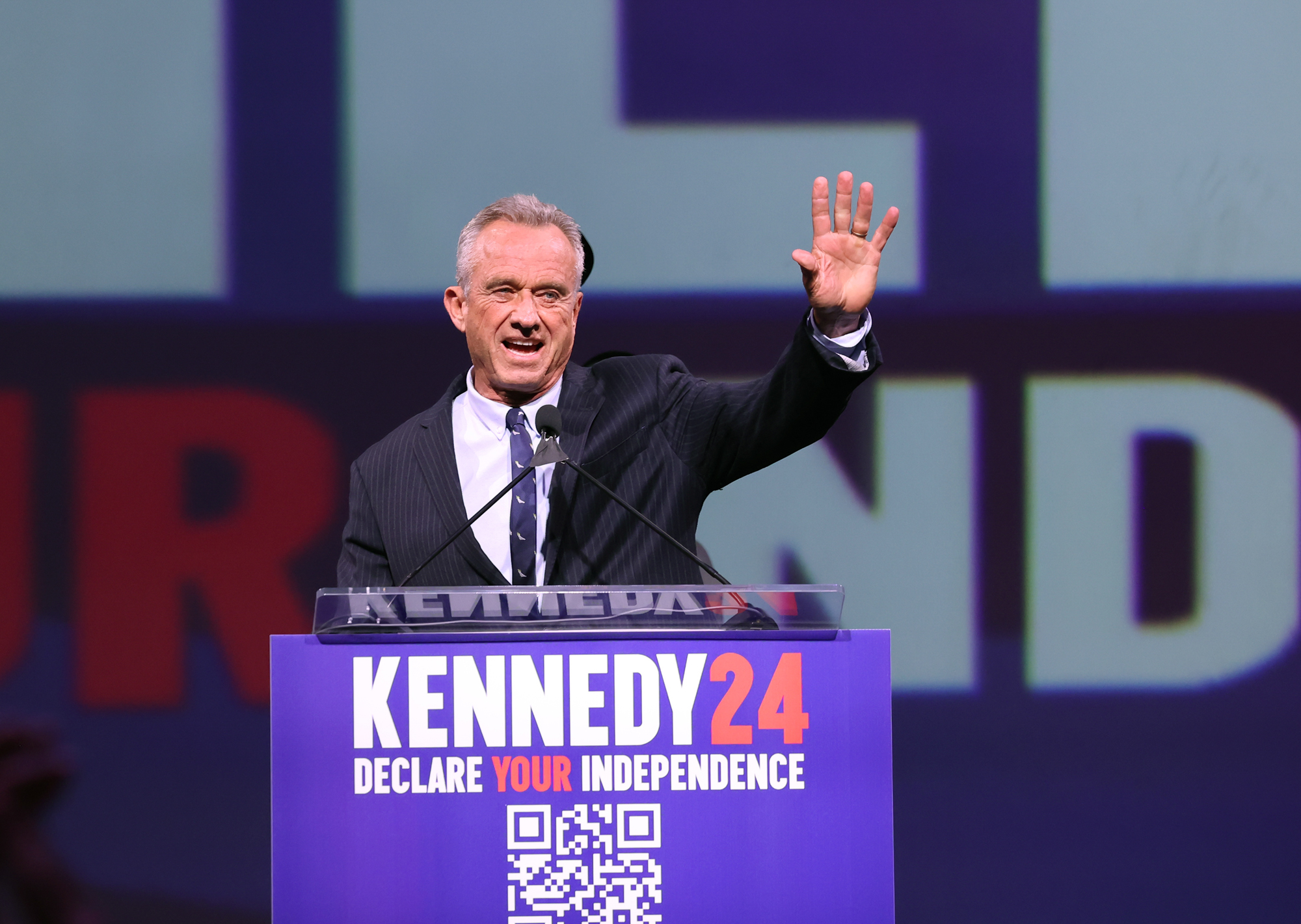Robert F. Kennedy Jr.’s presidential campaign is suing Nevada’s secretary of state over the state’s requirements for independent presidential candidates to land on the general election ballot, more than two months after state officials said his campaign’s petition to land on the ballot was likely invalid because it did not list a running mate.
In a lawsuit filed Friday in federal court in Nevada, the campaign asked the court to stop enforcement of the state’s “ambiguous and conflicting” ballot access laws for third-party candidates, arguing the rules violate the U.S. Constitution by imposing stricter requirements on independent candidates. The campaign also argued that a state election worker’s January approval of its petition (that state officials later walked back) represented official approval and cannot be reversed.
“The court must prohibit what was either rank incompetence or partisan political gamesmanship by the Secretary from invalidating petition signatures afforded the highest First Amendment protection by the United States Supreme Court,” Paul Rossi, a Kennedy campaign lawyer, said in a statement Monday.
In a statement, Secretary of State Cisco Aguilar said “Nevada has a rich history of independent and third party candidates for office. Each of those candidates managed to attain ballot access by following the law. We look forward to seeing Mr. Kennedy’s team in court.”
The lawsuit complicates the ballot access efforts for Kennedy, who polls show could play spoiler in the race between President Joe Biden and former President Donald Trump. His campaign only has roughly one more month to gather the more than 10,000 signatures required to qualify for the November ballot.
Rossi declined to comment on whether signature gathering efforts had restarted with Kennedy’s running mate included.
The campaign’s attorney sent a letter to state elections officials dated May 23 threatening litigation if a settlement to allow Kennedy on the ballot was not reached. CBS News first reported news of the letter on Friday.
Kennedy, who is John F. Kennedy’s nephew, is the latest member of his dynastic political family to enter the American political world. He is an environmental lawyer who originally ran for the Democratic presidential nomination last year before becoming an independent.
Kennedy, 70, rose to prominence during the pandemic for his false anti-vaccine conspiracy theories, including saying that “there’s no vaccine that is safe and effective” — a comment he has since tried to walk back — that vaccines cause autism and that the coronavirus might have been “ethnically targeted” to spare Ashkenazi Jews and Chinese people. The World Health Organization reports that vaccines “are very safe” and prevent adverse effects from harmful diseases.
The Kennedy campaign announced in early March that it had collected enough signatures to land on Nevada’s general election ballot, but its petition form did not include Kennedy’s running mate, later announced as attorney Nicole Shanahan, as is required by state law — which the secretary of state’s office said likely invalidated all of the campaign’s signatures.
The relevant Nevada law, according to state election officials, says that independent presidential candidates, by early August the year of the election, must submit a “declaration of candidacy and a petition of candidacy, in which the person must also designate a nominee for Vice President.”
The Kennedy campaign argued in its lawsuit that this law could be interpreted as requiring both the petition and declaration of candidacy to include a vice-presidential candidate, which it said would contradict another state law that prohibits more than one candidate from being listed on the declaration of candidacy.
The campaign also noted in its lawsuit that the petition form “provides only a single line for a single candidate.”
The Kennedy campaign’s signature gathering petition received approval from a state elections official in January, despite not listing a running mate, which the secretary of state’s office later said was “an error.” The lawsuit contends that the secretary of state’s office exerted its official authority in granting approval of the petition, and that they should be prevented from reversing that decision.
The office sent a letter to independent campaigns on March 7, two days after the Kennedy campaign announced it had gathered sufficient signatures to make it on the Nevada ballot, informing them of the requirement to include a running mate on petition forms, and said it did not hear from Kennedy’s campaign for months until the notice of an incoming lawsuit last week.
The lawsuit also argues that the requirement to name a vice presidential candidate on petition forms without including a “placeholder” option is unconstitutional, because major political party candidates do not have to name a running mate while vying for their party’s nomination.
Petitions from independent presidential candidates in Nevada must receive signatures from at least 1 percent of voters who cast a ballot in a congressional race in the previous election, meaning the 2024 ballot threshold is 10,095 signatures. The signature deadline is July 5, after which local and state elections officials undertake a signature verification process.
The Indy previously reached out to the Kennedy campaign in early May about whether it had restarted its signature gathering efforts. A spokesperson responded by saying it had no more updates since its March press release that alleged the state had conspired with the Democratic National Committee to invent a new requirement “with no legal basis.” The requirement to include the vice presidential nominee was added to Nevada law in 1993.
Polling is split on how Kennedy’s inclusion on the general election ballot might affect the results. For example, in a trio of Nevada polls conducted in May, Kennedy’s place on the ballot boosted Biden in two of them. In the other poll, which found Trump and Biden tied without Kennedy included, his place on the ballot boosted Trump’s lead to five percentage points.

